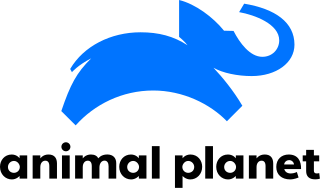The Radio-télévision belge de la Communauté française, shortened to RTBF, is a public service broadcaster delivering radio and television services to the French-speaking Community of Belgium, in Wallonia and Brussels. Its counterpart in the Flemish Community is the Dutch-language VRT, and in the German-speaking Community it is BRF.

The Swiss Broadcasting Corporation is the Swiss public broadcasting association, founded in 1931, the holding company of 24 radio and television channels. Headquartered in Bern, the Swiss Broadcasting Corporation is a non-profit organisation, funded mainly through radio and television licence fees (79%) and making the remaining income from advertising and sponsorship.
Viva was a German free-to-air music television channel, first broadcast on December 1, 1993. The channel was intended to compete against MTV Europe and was the sole German-language music TV channel after the closure of musicbox in 1988, while MTV was only broadcast in English until the introduction of MTV Germany in 1997. It was also supposed to focus more on German music and pop culture while MTV only broadcast anglophone music by artists primarily from North America, the United Kingdom, Ireland and Australia.
Radio Monte Carlo (RMC) is the name of radio stations owned and managed by several different entities:
SRF zwei is a Swiss German-language free-to-air television channel run under the public SRG SSR broadcasting group.

MTV Germany is a German language free-to-air television channel operated by Paramount Global. The channel launched on 7 March 1997 as MTV Central, as part of a regionalisation strategy by MTV Networks Europe.

Sky Deutschland GmbH, branded as Sky, is a German media company that operates a direct broadcast satellite Pay TV platform in Germany, Austria and Switzerland. It provides a collection of basic and premium digital subscription television channels of different categories via satellite and cable television.

MTV Brand New was a 24-hour specialist music channel featuring new music videos, alternative and indie music available in the Netherlands, Germany. In Italy, it was replaced by MTV Rocks in 2011. The Italian version of the channel launched on 14 September 2003; it then launched in the Netherlands on 1 August 2006. The German-speaking version of the channel launched in Germany, Austria and Switzerland on 1 February 2011.

Nickelodeon is a German free-to-air television channel for children, part of the international. based on the U.S. counterpart brand originally launched in 1995, and relaunched in 2005, Nickelodeon is based in Berlin. The channel is available on subscription services and as an unscrambled, free-to-air (FTA) satellite signal. On 31 March 2010, the channel re-adopted the name Nickelodeon on air and online, in addition to the new Nickelodeon logo and graphical package being rolled out internationally at the time. The "Nickelodeon" name was re-adopted once again when it rebranded on 1 August 2023, nearly 5 months after its rebrand in the U.S. Since then, the channel is also broadcast in English in addition to German on a secondary audio track. It is aimed at kids between the ages of 6 and 13.

SRF info is a German-language Swiss television channel owned by Schweizer Radio und Fernsehen. The channel started trial broadcasts in May 1999 and regular broadcasts in January 2001.

UPC was the largest cable operator in Switzerland with around 1.1 million residential and business customers and was formed in 1994 through the merger of several cable operators. UPC has been a subsidiary of Liberty Global from 2005 until its discontinuation in 2022.
Television in Switzerland was introduced in 1950, with regular broadcasts commencing in 1953. People who live in Switzerland are required by law to pay a television licence fee, which is used to finance the public radio and television service SRG SSR. Since 1 January 2021, the Licence fee cost in all the linguistic regions of Switzerland is 335 CHF per year or 83.75 CHF quarterly, counting both radio and television licences. All licence fee payers are entitled under the law to services of equal quality. The fee is charged per household and not per person, with empty dwellings being exempt. The fee is determined by the Federal Council.

MTV Switzerland was a localised version of MTV for the German-speaking market in that country. The channel began as an opt-out feed of MTV Central in 2004 featuring localized advertising and sponsorship, but as of April 2009 the channel will feature more local programming. Following the ceasing of VIVA Switzerland, MTV Switzerland was relaunched in April 2009 with more localized features to coincide ina dedicated website MTV.ch was launched in January 2010, alongside new music programming including a Swiss-German version of Brand New. VIVA Switzerland was later revived in 2012.

WarnerTV Film, formerly Turner Classic Movies (TCM) and TNT Film, is a German pay television channel owned by Warner Bros. Discovery International. The channel broadcasts movies both in their original language and dubbed into German.

The Pan-European Animal Planet is a feed of the U.S. channel of the same name, which broadcasts to several countries in Europe, UK, Africa and the Middle East.

Nickelodeon Schweiz is a Swiss German-language pay television channel centred towards children. It was launched on 1 April 2009 timesharing with VIVA Switzerland, replacing the German feed that was available in Switzerland. The programming schedule is the same as Nickelodeon Germany feed, with commercial breaks from the country being replaced by local ads.
Eurocops is a European television crime TV-series produced between 1988 and 1992. It is a co-production between seven European TV stations in which each station produced a number of episodes which were then pooled, dubbed and otherwise adapted when needed and broadcast by all participating stations, a format used earlier in the German crime series Tatort. The participating networks were ZDF from Germany, ORF from Austria, SRG from Switzerland, RAI from Italy, Televisión Española from Spain, Antenne 2 from France and Channel 4 from the United Kingdom.

German rapper Azet has released two studio albums, two collaborative albums, two extended plays and forty-two singles including seven singles as a featured artist.

Sky Switzerland is a Swiss media company based in Neuchâtel, which supplies over-the-top pay television and video on demand accessible through the Internet in Switzerland.












